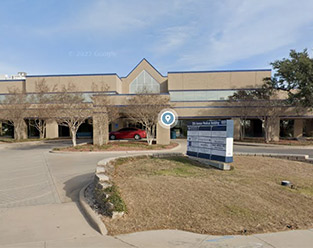Can a Helmet Reduce the Likelihood of a Traumatic Brain Injury or Concussion?
 Many of us thrive on an active lifestyle…mountain or road biking, rollerblading, ice skating, even taking a motorcycle out for a ride. All of those activities, though, come with inherent risks, particularly to the head and brain. Helmets are recommended (and even required) for some of these activities in some states. Can a helmet prevent a traumatic brain injury or other head trauma? What are the potential benefits of wearing a helmet when engaged in these types of activities?
Many of us thrive on an active lifestyle…mountain or road biking, rollerblading, ice skating, even taking a motorcycle out for a ride. All of those activities, though, come with inherent risks, particularly to the head and brain. Helmets are recommended (and even required) for some of these activities in some states. Can a helmet prevent a traumatic brain injury or other head trauma? What are the potential benefits of wearing a helmet when engaged in these types of activities?
A Helmet Won’t Guarantee that You Avoid a TBI or Concussion
If you’re looking for absolute assurance that you won’t sustain a traumatic brain injury or concussion, forget it. Even the top-of-the-line helmet can’t promise that. While some types of traumatic brain injury, including fractured skulls and penetration injuries, may be prevented by using a helmet, there are limits to what protective headgear can do. Many traumatic brain injuries result from the impact of the brain with the inside of your skull—a helmet won’t keep that from happening.
Why Should You Wear a Helmet?
There’s a lot of scientific research to support wearing a helmet when cycling, skating or participating in other activities where you might be exposed to the risk of head injury:
- A helmet will keep your head from making direct contact with another object, such as the roadway. That can certainly minimize the risk of cuts, scrapes, lacerations or road rash.
- A good helmet can prevent a skull fracture, which can minimize the risk of a wide range of complications associated in broken bones, including internal bleeding and inflammation
- A good helmet can absorb some of the impact of a collision—A well-constructed helmet will help dissipate the force of a blow or bump to the head, so that there’s less energy directed at your head or brain. That can make the difference between an injury that results in internal bleeding and one that does not.
To be effective, though, your helmet should be comfortable, but snug, with a buckle that keeps it aligned. Don’t use one that doesn’t fit well. Furthermore, if your helmet has been subjected to multiple incidents, it may lose much of its effectiveness and should be replaced.
Contact Us to Set Up an Appointment
At Advantage Healthcare Systems, we have extensive experience working successfully with individuals who suffer any type of personal injury. Call us toll-free at 1-877-487-8289 or fill out the form provided below to schedule an assessment. We offer locations across Texas, including Fort Worth, Dallas and San Antonio.





